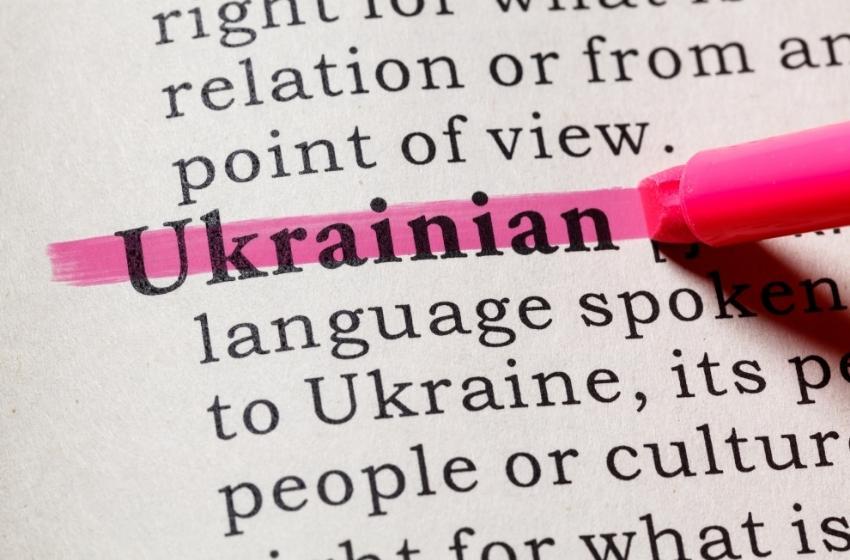Facebook, Twitter, and Instagram have noticeably become Ukrainized, while YouTube and TikTok will continue to be Russified.
Ukrainian consulting company Center for Content Analysis investigated the use of Ukrainian and Russian languages ​​in the Ukrainian segment of social networks in June 2022. This is reported on the company's website.
For the analysis, posts were collected from the most popular social networks in Ukraine, Facebook, Twitter, Instagram, Youtube, TikTok, as well as from the banned, but still used in some territories, Russian platforms VK and OK.
The frequency of use in each social network of pairs of words (tokens) that have distinct roots in the Ukrainian and Russian languages ​​was calculated. Lexemes were chosen so that they could be used by different categories of people, not only certain groups. Examples of such tokens: step-step, June-June, sugar-sugar, pumpkin-pumpkin, hospital-hospital. Lexemes were obtained from various aspects of human life: nutrition, daily life, household economy, health, etc.
A total of 866,000 posts were collected and analyzed, containing the named lexemes written from June 5 to July 5, 2022 by users who indicated Ukraine as their place of residence in their profile.
Due to the comparison of the mutual frequency of the use of Ukrainian and Russian tokens and the averaging of these frequencies, approximate estimates of the ratio of the use of the Ukrainian and Russian languages ​​both in general in the Ukrainian segment of social networks and separately for each social network and each region were revealed. The temporarily occupied regions of Donetsk, Luhansk, Kharkiv, Zaporizhzhya and Kherson regions, Crimea and Sevastopol, were taken into account.
The Center for Content Analysis conducted a similar study with an identical set of lexemes in October 2020. This made it possible to compare the data and get a certain idea about the dynamics of users' language preferences.
"Two years ago, the space of social networks remained the territory of almost total dominance of the Russian language. Although 77% of Ukrainian citizens called the Ukrainian language their mother tongue, 70% preferred it at work or at school, and 63% mostly used it at home, only every sixth post (16%) was made in social networks in the state language. In June 2022, in the fourth month of the full-scale war, the situation changed noticeably," the researchers note.
So, in the fourth month of the war, the Russian language lost its dominant position in the Ukrainian segment of social networks. But if we consider the most common platforms together, it still clearly prevails (37% of posts in Ukrainian versus 63% in Russian).
The key social networks Facebook, Twitter and Instagram showed the current Ukrainianization of users compared to the fall of 2020. If two years ago the share of posts in Ukrainian in these communities ranged from 13 to 27%, now it has reached two-thirds. In part, this is due to the entry into force of the law on customer service in Ukrainian in January 2021, as a result of which most organizations providing services switched to the state language of maintaining their pages.
However, the current study showed that the share of posts in Ukrainian (45%) among private accounts increased even more than among communities and interest groups. "It is logical to assume that the Ukrainization of the space of social networks was not only determined by legislation but also became a consequence of the users' language choice (self-determination). In general, it can be said that the users of the three mentioned social networks are now in a predominantly Ukrainian-speaking environment, which creates favorable conditions for the transition to the Ukrainian language of those who still prefer the Russian language," the researchers note.
Once the study showed that, in contrast to Facebook, Twitter, and Instagram, the Russian language still dominates other popular social networks in Ukraine. The share of Ukrainian-language YouTube content remains surprisingly small (5%), most likely due to monetization algorithms that encourage users to work for a wider Russian-speaking audience. As a result, the number of materials in the state language on YouTube increased only within the margin of error - by 2% in two years. Thus, the de-Russification processes, which fully manifested in Facebook, Twitter and Instagram, almost did not work in Youtube.
A similar trend was shown by TikTok - a communication medium for children, teenagers, and young people. The share of materials in the state language here remained at the pre-war level (about a third), testifying to a higher level of Russification of the younger age group of the population compared to the national average. The impact of the war in this environment (at least as of now) was not significant.
The Russian platforms VKontakte and Odnoklassniki, which have been banned in Ukraine since 2017, ceased to be a platform for official communication between the authorities, politicians, public opinion leaders and mass media 5 years ago, and after the full-scale invasion of the Russian Federation, they lost that part of private users who seek to distance themselves from ties with Russia. In fact, this turned the relict social networks of the aggressor country into a medium of communication for persons mostly indifferent to socio-political issues or outspoken supporters of Russia.
As for the regional dimension, compared to 2020, there is a noticeable Ukrainization of users in the western regions of Ukraine. Although, according to surveys, 98% of residents of the Western macro-region communicate in the state language at home and at work, two years ago they left every second post in social networks in Russian. Now the share of the latter has fallen to 10-25%. The Center of Ukraine has also grown noticeably. At the same time, the Russian language dominates or occupies an important place in the east and south of the country, as well as in Kyiv. Odessa is the most Russified region (along with Donbas and Crimea), where only every fourth post on social networks is written in Ukrainian. The share of posts in Ukrainian in Donetsk and Luhansk regions in June was minimal, apparently for two reasons: the occupation and the forced resettlement of the majority of residents to the other regions of Ukraine.
"Thus, Russian aggression caused noticeable changes in the order of use of the Ukrainian and Russian languages ​​in the Ukrainian segment of social networks. Facebook, Twitter, and Instagram have undergone significant Ukrainianization. At the same time, the war (at least in the short term) has practically no effect on the language mode of Youtube and TikTok. Ukrainization of the first requires additional social and/or legislative conditions. On the other hand, the second one looks the least susceptible to external influences and is related to the communicative situation in youth and adolescent environments, which can only be changed in a comprehensive manner," experts of the Content Analysis Center conclude.





















